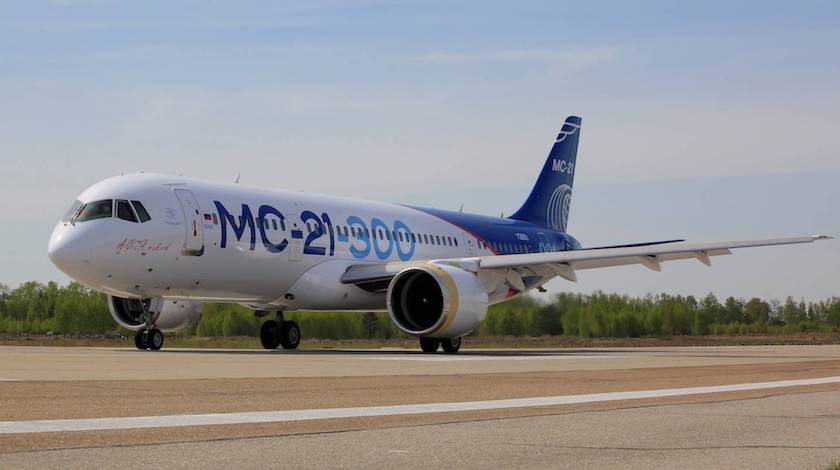Photo: Irkut
Reading Time: < 1 minuteThe flight test team of the European Union Aviation Safety Agency (EASA) has completed the first flight testing session of Russia’s advanced MC-21-300 narrow-body twin jet certification campaign.
Participation of EASA in the testing of the new aircraft is a prerequisite to its final validation by the European agency.
During the certification tests, the behaviour of the MC-21-300 was evaluated in various modes, including high angles of attack and stalling. Flights of durations from 2.5 to four hours were performed at altitudes ranging from three to 10 km.
The overall certification and approvals process for the MC-21 has been postponed recently, with tests of the first variant of the airliner, powered by Pratt & Whitney PW1400G engines, now scheduled to complete in the second half of 2020. The aircraft’s entry into service date was previously set for 2019.
According to a report published in the autumn of 2018 by Russia’s Audit Chamber, some 158 billion roubles has already been allocated to the development of the MC-21. Up to 2025, the total cost of the programme is now estimated at 437.4 billion roubles and may increase even further.

